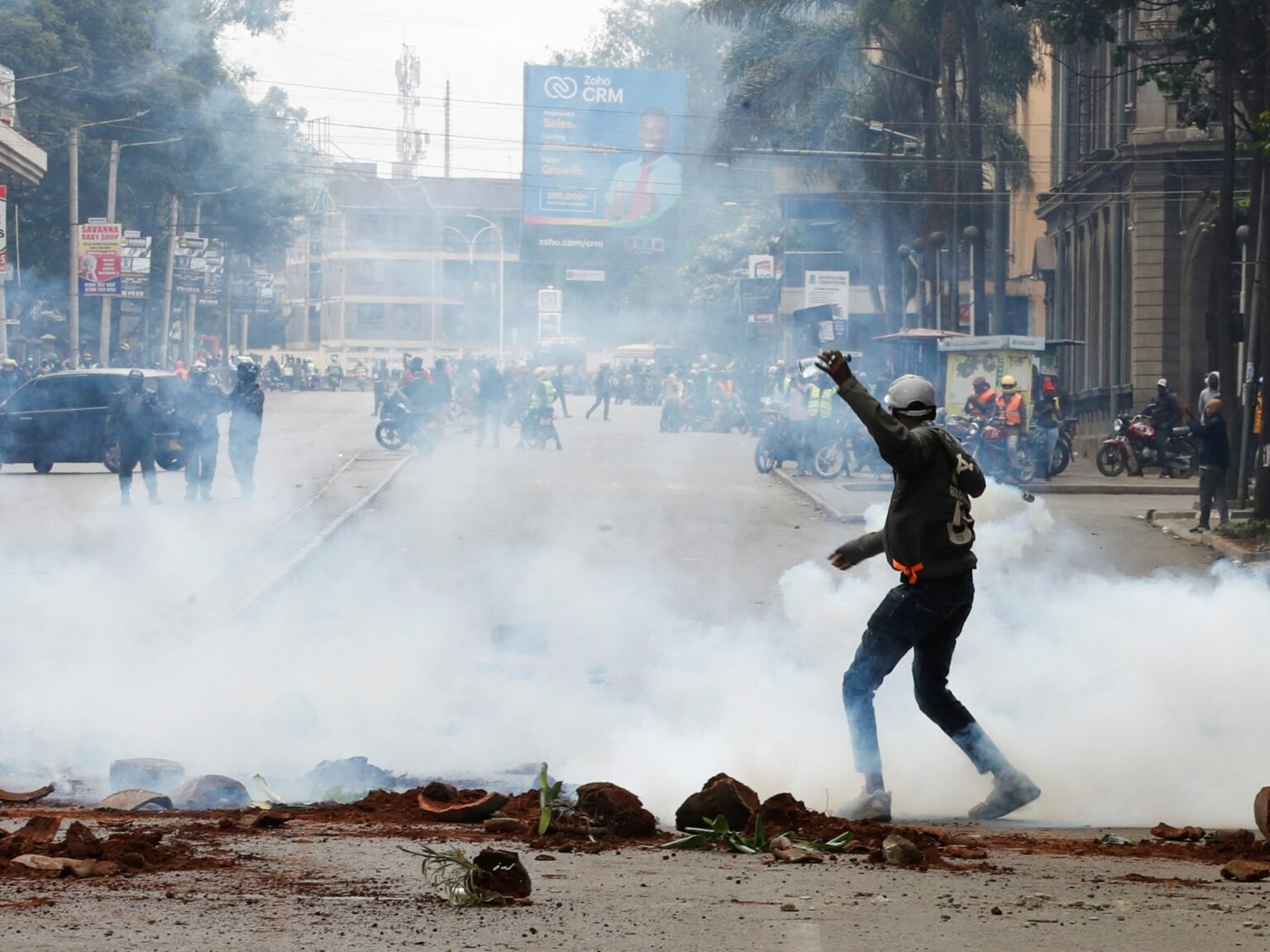In Kenya, anti-government protests have escalated in recent weeks, with clashes between demonstrators and security forces intensifying. Tear gas and rubber bullets have been used by law enforcement to disperse crowds, leading to injuries and arrests. The unrest is fueled by allegations of government corruption, lack of accountability, and abuses of power. Protesters are demanding reforms and a change in leadership to address these grievances.
The use of tear gas and rubber bullets against protesters has raised concerns about excessive use of force and violations of human rights. Images and videos circulating on social media show security forces firing tear gas canisters and rubber bullets at crowds of protesters, many of whom are peaceful. The indiscriminate use of such weapons has resulted in injuries and even deaths among demonstrators, further fueling anger and resistance against the government.
The international community has condemned the use of tear gas and rubber bullets on protesters in Kenya, calling for restraint and respect for the rights of peaceful assembly and freedom of expression. Human rights organizations have documented cases of abuse and excessive force by security forces during the protests, urging the government to uphold its obligations to protect the rights of its citizens. The escalation of violence only serves to deepen the distrust and resentment between the government and the people.
The government of Kenya has defended the use of tear gas and rubber bullets as necessary measures to maintain law and order during the protests. Officials argue that the demonstrations have turned violent, with protesters engaging in acts of vandalism and aggression towards security forces. They maintain that the use of force is justified to protect public safety and prevent further unrest. However, critics argue that the heavy-handed tactics used by the government are only inflaming tensions and provoking more resistance.
As the situation in Kenya continues to escalate, there are growing calls for dialogue and reconciliation between the government and protesters. Civil society groups, religious leaders, and opposition politicians are advocating for peaceful means to address the grievances of the people and to find a way forward through dialogue and negotiation. The use of tear gas and rubber bullets as a means of quelling dissent only serves to deepen divisions and prevent any meaningful progress towards resolving the underlying issues fueling the protests.
In conclusion, the use of tear gas and rubber bullets against anti-government protesters in Kenya reflects a broader pattern of repression and resistance in the country. The government’s crackdown on dissent has only served to galvanize opposition and mobilize support for change. The international community’s condemnation of the government’s actions underscores the need for accountability and respect for human rights. As the protests continue, it is crucial for all parties to engage in constructive dialogue and find peaceful solutions to the current crisis.

